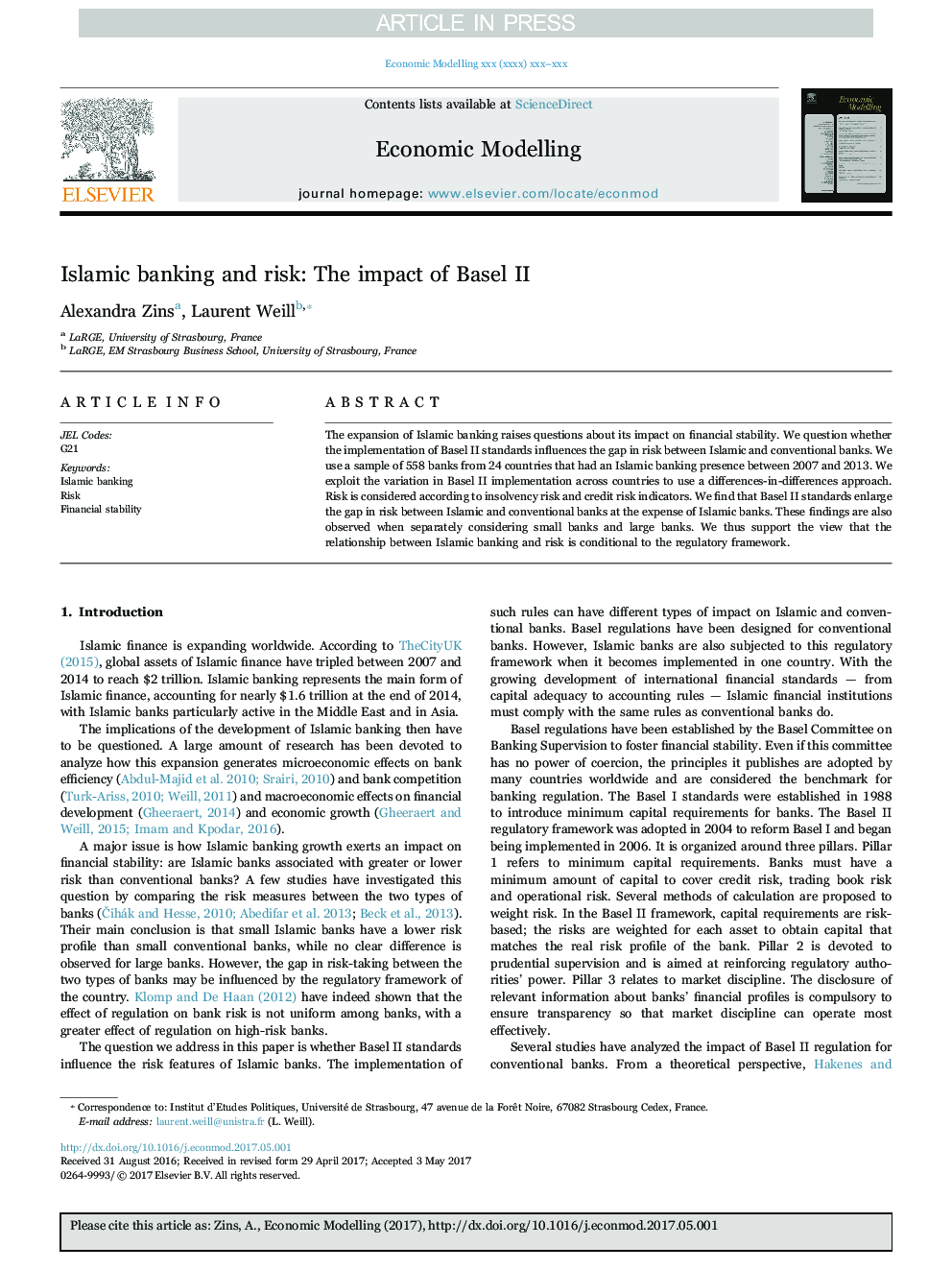| Article ID | Journal | Published Year | Pages | File Type |
|---|---|---|---|---|
| 5053180 | Economic Modelling | 2017 | 12 Pages |
Abstract
The expansion of Islamic banking raises questions about its impact on financial stability. We question whether the implementation of Basel II standards influences the gap in risk between Islamic and conventional banks. We use a sample of 558 banks from 24 countries that had an Islamic banking presence between 2007 and 2013. We exploit the variation in Basel II implementation across countries to use a differences-in-differences approach. Risk is considered according to insolvency risk and credit risk indicators. We find that Basel II standards enlarge the gap in risk between Islamic and conventional banks at the expense of Islamic banks. These findings are also observed when separately considering small banks and large banks. We thus support the view that the relationship between Islamic banking and risk is conditional to the regulatory framework.
Related Topics
Social Sciences and Humanities
Economics, Econometrics and Finance
Economics and Econometrics
Authors
Alexandra Zins, Laurent Weill,
